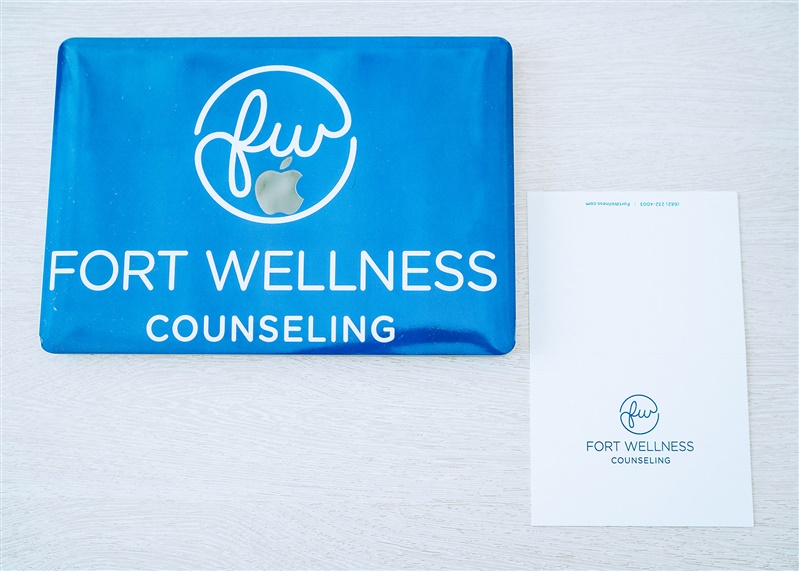
Offering Support After the Texas Hill Country Flooding
Offering Support After the Texas Hill Country Flooding By: Rane Wallace, MS, LPC, LCDC, SAP When tragedy strikes, it comes out of nowhere. And it

In the world we live in today, mental health struggles are incredibly common. Millions of people are affected by mental illnesses each year. Studies suggest that 1 in 4 people will experience one in their lifetime. Having self-care journaling prompts is a proven activity to improve your mental health.
If you’re struggling with your mental health, it’s important to understand that you aren’t alone. However, it’s also okay to acknowledge that coping might be difficult. While scheduling appointments with Licensed Professional Counselors, taking prescription medications, and practicing mindfulness are all great tools for managing mental health symptoms, there are additional methods that you can try.
Journaling, for example, is a simple practice that can help you deal with anxiety, stress, depression, and bipolar disorder (and it can be done from the comfort of your home). Additionally, those struggling with mental health can use their journals to record behaviors and improve their habits.
Unsure how to go about starting a journaling habit? Don’t worry, that’s what I’m here for. I’ve helped hundreds of people embark on their journaling journey, and I’d be happy to do the same for you.
Learning how to take care of yourself is an integral part of being human. Simply going throughout our daily lives places a wide variety of emotions at our feet. And that alone can feel overwhelming. Journaling, therefore, is a fantastic way to express yourself and deal with those intense emotions.
Of course, there are plenty of additional benefits that journaling can provide. Such as:
Are you wanting to get into the habit of journaling? For some, this might seem like an easy task, but for others… well, not so much. Regardless of which camp you find yourself in, here are some tips to help you get started:
Have you mastered the art of journaling each day (or however often works for you), but are running out of things to write about? Don’t feel discouraged, as even the most talented of writers struggle with writer’s block.
If you need a bit of inspiration, try these 5 self-care journaling prompts to improve your mental health:
Think of a moment in your life when you felt happy. In your journal, describe the situation and the surroundings at the time. Where were you? Who were you with? What were you doing?
If you can, try and recall what exactly made you feel happy and how that emotion felt. Consider whether you could recreate that feeling in another manner, and jot down some ideas of how.
Stream-of-consciousness writing is exactly what it sounds like. According to Matthew Welsh, MS, Ph.D., it is “writing the first words or thoughts that go through your mind without actually planning or consciously thinking about what you are writing.”
To practice, simply write the very first word or thought that pops into your head. Then, keep going. When you’re writing via stream-of-consciousness, there’s need for commas, periods, or capitalization. Just keep writing until you feel like stopping.
Sounds kind of funky, right? However, if you write a letter to something that scares you, it’ll usually tell you how it feels. Not only will this make your fears appear smaller and less overwhelming, but consistent practice will help release their grip on your life.
Okay, yes… this might seem counterintuitive. However, when you’re in the midst of an anxiety or panic attack, journaling can become an incredible route out of it. People tend to have a hyper sense of self-awareness when they’re mid-anxiety attack, so grab your pen and put every feeling on paper.
When you’re navigating problems related to mental health, it’s important to remind yourself that you’re only human. Your journal is a safe space to apologize for moments when you’ve been hard on yourself. More importantly, it’s a place for you to forgive yourself for not being perfect.
Still want some more journaling prompts? Don’t worry, I’ve got you covered. You can find an additional 20 journaling prompts. Or, you can check out an additional 64 journaling prompts from mental health.
By now, I hope you’re able to understand how journaling can be a terrific tool for your mental health. Also, I hope that these 5 self-care journaling prompts to improve mental health were able to offer a bit of inspiration.
Journaling can help you manage struggles like depression, anxiety, stress, and bipolar disorder. However, to effectively treat those mental health illnesses, journaling is best combined with routine visits to a licensed mental health counselor.
If you’re looking for one of the best rated mental health therapist in Fort Worth, Texas, look no further than Fort Wellness Counseling. We believe in patient-centered care that equips you with the skills necessary to accomplish real, long-term change. We provide individual therapy and specialty counseling services.
As much as journaling can help soothe your mental health battles, they don’t have to rule your life. Contact our team to book an appointment today.

Offering Support After the Texas Hill Country Flooding By: Rane Wallace, MS, LPC, LCDC, SAP When tragedy strikes, it comes out of nowhere. And it

Family Vacations & Your Mental Peace: Strategies for Stress-Free Summer Travel By: Rane Wallace, MS, LPC, LCDC, SAP Of course, traveling with your family is

Mental Health 101: Debunking Common Myths By: Rane Wallace, MS, LPC, LCDC, SAP Every May, Mental Health Awareness Month raises awareness and advocacy for people

Medical Trauma: Understanding and Healing from Difficult Healthcare Experiences By: Rane Wallace, MS, LPC, LCDC, SAP Over the years, I’ve come to understand that for

Social Media Depression: Beyond FOMO to Algorithm-Induced Mood Change By: Rane Wallace, MS, LPC, LCDC, SAP I’ve seen this happen so many times with patients,

How to Wind Down at Night: Simple Sleep Hygiene Tips By: Rane Wallace, MS, LPC, LCDC, SAP Sleep hygiene might sound like a fancy term,

Pregnancy and Postpartum Anxiety Treatment in Fort Worth By: Rane Wallace, MS, LPC, LCDC, SAP Have you or a loved one experienced anxiety during pregnancy

Breaking the ‘New Year, New Me’ Mindset: A Guide to Sustainable Change By: Rane Wallace, MS, LPC, LCDC, SAP In my years as a therapist,

How to Support a Partner with Chronic Illness: A Mental Health Perspective By: Rane Wallace, MS, LPC, LCDC, SAP Living with a chronic illness can

EMDR for Attachment Issues: Building Healthy Relationships By: Rane Wallace, MS, LPC, LCDC, SAP When you hear “EMDR therapy” (Eye Movement Desensitization and Reprocessing), you

How to Deal with a Narcissistic Partner By: Rane Wallace, MS, LPC, LCDC, SAP Do you ever feel like your partner thinks they’re better than

How to Recover from Burnout By: Rane Wallace, MS, LPC, LCDC, SAP Burnout is a common struggle in today’s fast-paced world. Life’s relentless demands can

The Benefits of Attending Couples Counseling By: Rane Wallace, MS, LPC, LCDC, SAP There’s a misconception about couples counseling – that it signals the end

Things to Know About Individual Counseling in Fort Worth, TX By: Rane Wallace, MS, LPC, LCDC, SAP May is Mental Health Awareness Month, a good

Everything You Need to Know About EMDR Therapy By: Rane Wallace, MS, LPC, LCDC, SAP Have you heard about EMDR therapy and want to learn

What is Nature Therapy? (And Why You Should Be Doing It!) By: Rane Wallace, MS, LPC, LCDC, SAP Let’s face it: there’s just something about

The Benefits of Virtual Therapy in Texas By: Rane Wallace, MS, LPC, LCDC, SAP Technology is changing everything, and healthcare is no different! Thanks to

How to Get Over a Breakup By: Rane Wallace, MS, LPC, LCDC, SAP Breaking up with a romantic partner is painful – no matter the reason

How to Set New Year’s Resolutions By: Rane Wallace, MS, LPC, LCDC, SAP How to Set New Year’s Resolutions Setting goals gives us a sense

How to Cope with Holiday Stress By: Rane Wallace, MS, LPC, LCDC, SAP Say No to Prevent Burnout There are an abundance of obligations that

Trauma Therapy in Fort Worth: Types, Benefits & More By: Rane Wallace, MS, LPC, LCDC, SAP Believe it or not, an estimated 60% of men

How to Communicate Better in Relationships By: Rane Wallace, MS, LPC, LCDC, SAP Whether with coworkers or your significant other, the ability to communicate effectively

How to Prevent Seasonal Affective Disorder (SAD) By: Rane Wallace, MS, LPC, LCDC, SAP If you’re struggling with winter blues, know you’re not alone. SAD

What is a Functioning Alcoholic? By: Rane Wallace, MS, LPC, LCDC, SAP When someone is deemed a ‘high-functioning alcoholic,’ they’re able to carry out daily

How to Help Yourself – And Others – with Suicidal Ideation By: Rane Wallace, MS, LPC, LCDC, SAP September is Suicide Awareness Month. And while

32 Questions to Strengthen Your Relationship By: Rane Wallace, MS, LPC, LCDC, SAP When was the last time you had a meaningful conversation with your

The Fawn Response: How Trauma Can Lead to People Pleasing By: Rane Wallace, MS, LPC, LCDC, SAP Do you often find yourself putting the needs

How to Overcome ‘Hangxiety’ (Post-Drinking Anxiety) By: Rane Wallace, MS, LPC, LCDC, SAP Thought the consequences of drinking heavily were merely physical? Unfortunately, you’ll have

What is Box Breathing? Plus Tips for Beginners By: Rane Wallace, MS, LPC, LCDC, SAP Ever heard of box breathing? This popular relaxation technique involves

Do Mindfulness Exercises for Anxiety Work? By: Rane Wallace, MS, LPC, LCDC, SAP Do mindfulness exercises for anxiety work? If you (or people in your

What is Trauma Bonding? 4 Warning Signs By: Rane Wallace, MS, LPC, LCDC, SAP If you’ve ever been in an abusive relationship and felt bonded

Why Do We Cry? 4 Reasons and Crying Benefits By: Rane Wallace, MS, LPC, LCDC, SAP There’s no getting around it – crying is part

What Is Habit Stacking? (And How to Do It) By: Rane Wallace, MS, LPC, LCDC, SAP Supporting our mental health is one of those goals

5 Tips for Living with Someone with OCD By: Rane Wallace, MS, LPC, LCDC, SAP While living with OCD (obsessive-compulsive disorder) can be demanding, living

What is Assertive Communication? By: Rane Wallace, MS, LPC, LCDC, SAP So, what is assertive communication? Well, in a nutshell, this communication style aims to

PTSD Counseling in Fort Worth: Proven Coping Strategies By: Rane Wallace, MS, LPC, LCDC, SAP For those who didn’t already know, post-traumatic stress disorder (PTSD)

Brainspotting vs. EMDR: What’s the Difference? By: Rane Wallace, MS, LPC, LCDC, SAP According to the National Council for Mental Wellbeing, 70% of American adults

Mindfulness Exercises to Strengthen Your Recovery By: Rane Wallace, MS, LPC, LCDC, SAP Are you recovering from alcohol and/or substance abuse? Self-improvement is a life-long

How to Find a Counselor in Fort Worth By: Rane Wallace, MS, LPC, LCDC, SAP Are you considering therapy? If so, finding a counselor in

How To Not Be Codependent In A Relationship By: Rane Wallace, MS, LPC, LCDC, SAP Wondering how to not be codependent in a relationship? Sometimes

What is Parental Anxiety? Coping Tips from a Therapist By: Rane Wallace, MS, LPC, LCDC, SAP Every parent wants to shield their child from danger

What is EMDR Therapy? By: Rane Wallace, MS, LPC, LCDC, SAP Ever heard of eye movement desensitization and reprocessing therapy? More commonly known as EMDR,

8 Proven Tips to Sleep Better at Night (and Improve Your Mental Health) By: Rane Wallace, MS, LPC, LCDC, SAP Struggling with restless nights and

How to Have a Healthy Relationship with Social Media By: Rane Wallace, MS, LPC, LCDC, SAP In today’s world, there’s no escaping the presence of

What Is The Goal of Psychotherapy? By: Rane Wallace, MS, LPC, LCDC, SAP Have you been considering psychotherapy? The start of a new year is